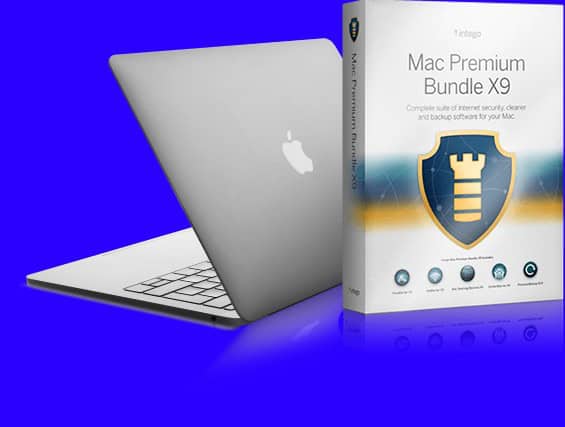Is it necessary to install antivirus on your Mac or does the laptop itself offer sufficient protection? We tell you what you need to know about antivirus for Mac(Book).
Antivirus software can protect a computer from malware, such as viruses, spyware and other malicious programs. The software works in the background and checks whether there is malware on your laptop or PC. That sounds good, but do you really need an (extra) antivirus on your Mac or MacBook?
Apple products are generally considered safe and reliable, although malware does occasionally slip through Apple’s built-in antivirus.
However, that doesn’t mean you should download an antivirus program right away. Apple’s built-in measures on your Mac or MacBook will protect you from the biggest malware threats.
On your Mac(Book), XProtect ensures that every app is inspected for malware, and Gatekeeper blocks the execution of software that is not approved by Apple, unless you explicitly give permission. It is also good to know that Apple generally closes vulnerabilities quickly via automatic updates.
When new malware is discovered on macOS, you will soon read about it in the (tech) media. It is therefore wise to regularly keep an eye on the news about Apple products so that you are aware of any vulnerabilities and can protect yourself against them.
In many cases, it is not absolutely necessary to install additional antivirus on your Mac, but there are exceptions. Do you share your Mac(Book) with multiple people?
Do you want to be on the safe side? Or are you looking for additional protection for your files because of your profession? You can then consider adding an extra layer of security by installing an antivirus on your Mac.
Mac Antivirus Recommendations
Mac users looking for good antivirus software to complement Apple’s own measures can turn to about fifteen providers.
In our guide to the best virus scanners for Mac, you can read all about these tools and tell you which software you should use. We’ve listed the best software for detecting malware on macOS for you below (in alphabetical order):
- AVG Antivirus
- Avira Security
- Bitdefender
- CleanMyMac X
- Malwarebytes
- Norton 360
- Trend Micro Antivirus
How to protect your Mac(Book) without antivirus
Prefer not to install additional antivirus software on your Mac? The following tips will help you protect yourself against malware.
Tip 1: Use the Mac App Store
MacOS comes with standard antivirus features that prevent you from installing apps from unknown developers unless you specify otherwise.
As long as you only download software from the Mac App Store, you’re relatively safe. You can be almost certain that the software hasn’t been tampered with since Apple pre-screens it for malware. Of course, there’s no guarantee that something could slip through, although that rarely happens.
Tip 2: Download software from the developer
Another way to protect yourself is to only download software from the developer’s own website (a trusted developer).
Some software simply cannot be downloaded from the Mac App Store. In that case, the developer’s own website is the best place to go.
Don’t be tempted by the sometimes countless download portals on the internet. After all, you don’t know exactly what you are downloading from third-party websites.
Before you download software outside of the Mac App Store, it is wise to check how reliable the developer of the program is.
If you do not know the name of the software or the developer, it is important to first do research on its reliability.
For example, read reviews and check whether the software is regularly provided with (security) updates. This way you know that any vulnerabilities are (probably) quickly closed.
How do you know if you are infected?
It is not always clear whether your Mac(Book) is infected with malware. It is even possible that you only find out after a long time that you have been affected by malware.
For example, because an unauthorized amount is suddenly debited from your credit card or because you suddenly no longer have access to certain files on your laptop or desktop.
In some cases, however, it is very clear that your Mac(Book) is infected with malware. For example, because you receive one pop-up after another with advertisements or because unknown extensions or toolbars appear in your browser.
That is why it is advisable to always investigate the origin of sudden additions that you do not know. Also, if the performance of your Mac decreases inexplicably or certain apps no longer work properly, this can indicate the presence of malware.
In any case, never fall for dubious advertisements for tools that promise to make your Mac faster (such as MacKeeper ).
Instead, get help from someone who knows about computers and software, or install a reputable virus scanner to scan your Mac or MacBook for any malware.
 Trick Knowledge Technology
Trick Knowledge Technology

